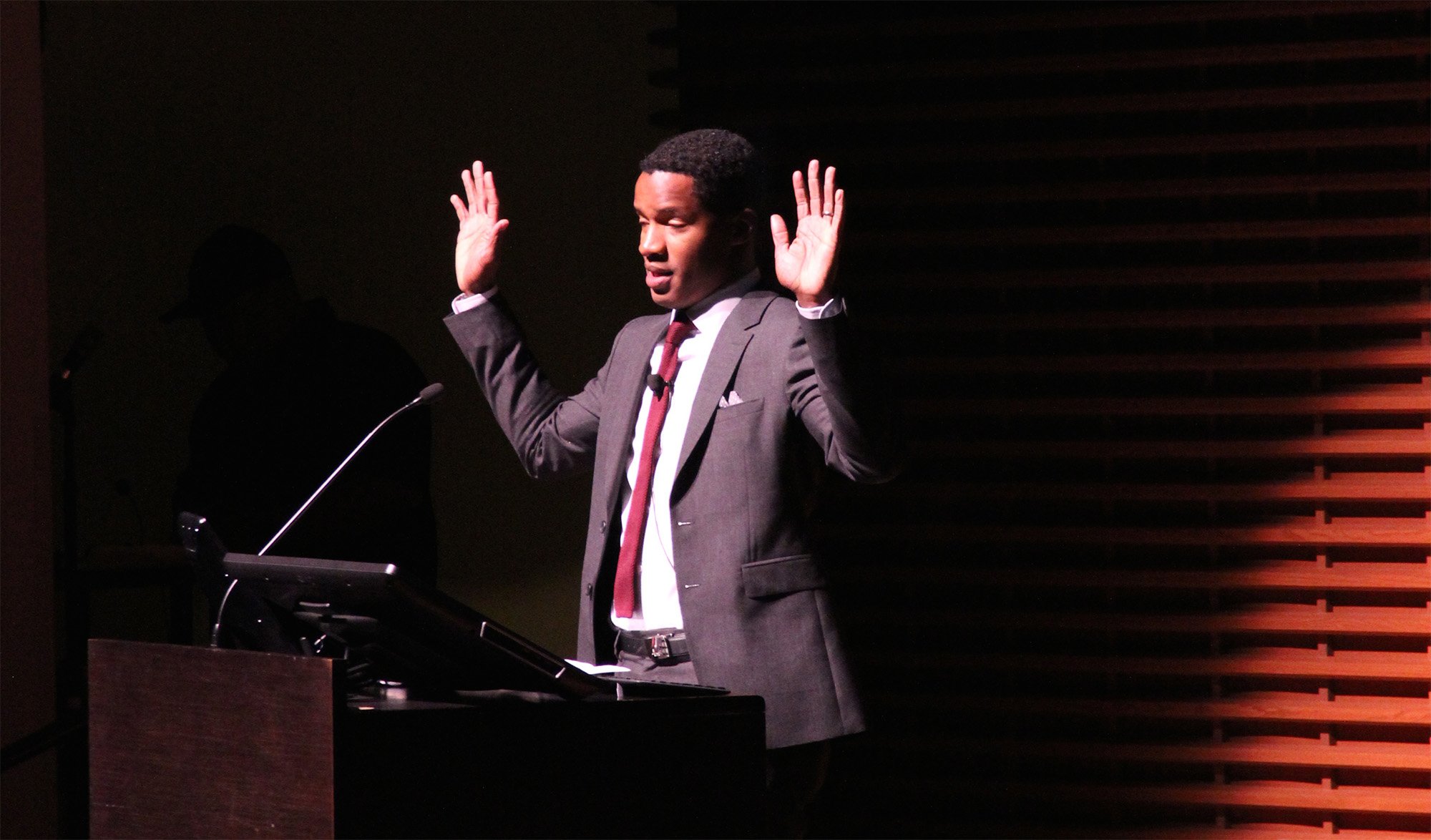Actor, director and humanitarian Nate Parker spoke at the African & African American Studies (AAAS) department’s annual St. Clair Drake Memorial Lecture on Wednesday night to discuss his upcoming movie “The Birth of a Nation,” a retelling of the story of Nat Turner.
Parker spoke about his inspiration for the movie and how its themes of resistance and freedom echoed in current black social justice movements such as Black Lives Matter.
“The Birth of a Nation” is Parker’s directorial debut. His acting resume includes the movies “The Great Debaters” (2007) and “Beyond the Lights” (2014). “The Birth of a Nation” is scheduled for release in October following acclaim at the 2016 Sundance Film Festival.
Throughout his speech, Parker repeated that America was in “a state of emergency.”
“A healthier black community is a healthier United States of America,” Parker said.
The lecture’s namesake, John Gibbs St. Clair Drake, was a black professor in sociology and anthropology. From 1969 to 1979, St. Clair Drake served as founder and director of Stanford’s AAAS department. The program began an annual series of lectures in honor of St. Clair Drake in 2003; past notable guests include Angela Davis in 2012 and Harry Belafonte in 2014.
Parker recalled having relatively scant knowledge of black history in America before college: Eli Whitney’s cotton gin, the Atlantic slave trade and “You’re a Grand Old Flag.” In college, Parker impulsively enrolled in an African American Studies class; it was here that he first learned about Nat Turner, who led a slave rebellion in 1831 in Parker’s home state.
For Parker, it was the first time that he had heard that “people stood up and fought, and people died” fighting the injustice of slavery.
“All of a sudden, I had a hero — a hero that made me feel like sacrifice, on behalf of the greater progress of people that look like you … my history, my power, my potential was way bigger,” Parker said.
Years later, after becoming an actor, Parker sought to write a movie about Turner’s story. When filmmakers balked at his idea for being too uncommercial, Parker suspended his acting career and spent two years raising money for the $10 million production budget. Parker would write, produce and direct the film as well as star as his hero.
On Jan. 25, “The Birth of a Nation” premiered at the Sundance Film Festival. By the end of the festival six days later, the movie had not only won the Grand Jury Prize and Audience Award in the U.S. Dramatic Competition, but it had also inked a deal with Fox Searchlight Pictures for $17.5 million — the largest deal in the festival’s history.
“This was a story about a country”
Following his lecture, Parker was joined onstage for a panel discussion with Stanford’s Vice Provost Harry Elam and assistant professor of American history Allyson Hobbs, as well as UCLA’s Gary B. Nash Professor of American History Robin D.G. Kelley.
Hobbs highlighted Turner’s rebellion as a “watershed moment in the black freedom struggle.” She also added that, in his trial, Turner’s volition was construed as evidence of demonic possession and madness.
“His knowledge, his self-understanding, his humanity could never be recognized,” Hobbs said.
Kelley spoke of the power that film has in shaping perception of historical events, with Kelley saying that “The Birth of a Nation” sought to “restore and recover” this chapter of American history.
“Film, and other forms of media, are also weapons in the struggle to undo racial regimes,” Kelley said.
Kelley and Parker also discussed the deliberate decision to name Parker’s film after D.W. Griffith’s controversial 1915 opus. Griffith’s film glorified the foundation of the Ku Klux Klan and was used as a recruiting tool for the Klan in the early 1900s.
“They call [Griffith’s film] a historical epic, but it’s not, because it’s a radical revision of history,” Kelley said.
“In choosing this title, I wanted to make it clear that this wasn’t just a story about a man,” Parker said. “This was a story about a country.”
“So when I took that name and I reclaimed it and I repurposed it … guess who owns that title now?” Parker added. The room responded with thunderous applause.
Parker also addressed comparisons between his film and “12 Years a Slave,” calling the latter “an important step for us” but stating that he was not looking to create “another ‘12 Years.’”
“This film isn’t about endurance, or resilience,” Parker said. “This film is about resistance.”
Contact Jacob Nierenberg at jhn2017 ‘at’ stanford.edu.
